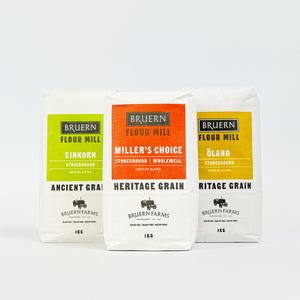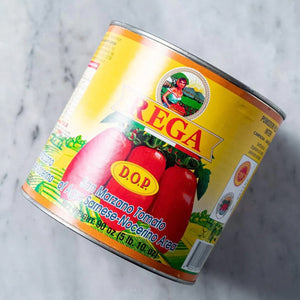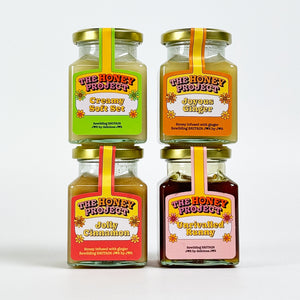
Flour Fortification, what is it and why does it exist?
Flour is a staple ingredient in many households, used to make a variety of baked goods. In the United Kingdom, there are regulations in place to ensure that flour is fortified with essential nutrients. But what exactly does flour fortification mean, and why is it important? In this blog post, we will explore the UK law regarding flour fortification and shed light on the concept of unfortified flour.
What is Flour Fortification?
Flour fortification is the process of adding essential nutrients to flour to improve its nutritional value. In the UK, the law requires that certain nutrients be added to flour to help address potential deficiencies in the population's diet. These nutrients include iron, calcium, and vitamins B1 (thiamin) and B3 (niacin).
Why is Flour Fortification Important?
Fortifying flour with essential nutrients is crucial for public health. It helps to prevent and combat nutrient deficiencies that can lead to various health issues. For example, iron deficiency can cause anemia, while a lack of thiamin and niacin can result in conditions like beriberi and pellagra, respectively.
By fortifying flour, the UK government aims to ensure that the population receives an adequate intake of these essential nutrients, even if their diet is lacking in certain food groups. This is particularly important for vulnerable groups, such as pregnant women, children, and the elderly.
Flour Fortification in the UK
In the UK, the law requires that white flour be fortified with iron, calcium carbonate, thiamin, and niacin. The specific amounts of these nutrients are regulated to ensure that they are present in adequate quantities to have a positive impact on public health.
It's worth noting that wholemeal flour naturally contains higher levels of nutrients compared to white flour. However, even wholemeal flour is fortified to ensure a consistent and sufficient nutrient content across different brands and batches.
What is Unfortified Flour? and what if I only want to use Non-Additive Pure flour?
Unfortified flour refers to flour that has not been enriched with additional nutrients. While unfortified flour may still contain some naturally occurring nutrients, it does not meet the specific requirements set by the UK law for fortification.
Unfortified flour is commonly used in recipes where the addition of specific nutrients is not necessary or desired. For example, in certain baking techniques or traditional recipes, unfortified flour allows for more control over the final product's texture and flavor.
At Ratton Pantry we offer a range of non-fortified flour, unenriched flour, non-additive flour and pure flours across a range of wholemeal flour, rye flour, spelt flour and other ancient grain flour.





Leave a comment